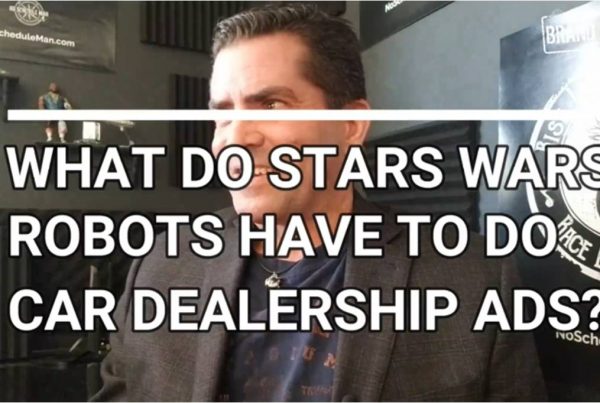I’ve been fortunate to get to know a great many interesting and inspiring people. I’m grateful to have learned a lot from each of them.
One those people is Fred Geiger.
 Fred co-owns a London, Ontario-based business called Custom Mobility, which provides wheelchairs, walkers, and other mobility devices, as well as home healthcare equipment. Compassion, integrity, transparency and empowerment are all extremely important to Fred, and he brings all of these things (and more) to Custom Mobility on a day-to-day basis.
Fred co-owns a London, Ontario-based business called Custom Mobility, which provides wheelchairs, walkers, and other mobility devices, as well as home healthcare equipment. Compassion, integrity, transparency and empowerment are all extremely important to Fred, and he brings all of these things (and more) to Custom Mobility on a day-to-day basis.
Currently a weekly host of his own “Ask the Experts” radio show on 1290 CJBK (Mondays at 12:00 pm), Fred has always been one to explore new and different opportunities. He has been in the Military, Police, Education and has helped build private businesses on a couple of different fronts.
Even at the age of 17, he was ready to take on a challenge, feeling at that time that he could (should?) open a McDonald’s franchise. His feelings about it were strong enough that he took the initiative to contact the restaurant chain’s Regional Vice President, with whom he eventually took a meeting … at 17 years of age! Among the many things that came from that conversation was the prediction from the McDonald’s Executive that Fred would be “a millionaire by the time he was in his 40’s.” He was also offered a position in the company at that time, but eventually decided to pass due to potential travel concerns.
Those things will come up again later in this conversation.
All of it has brought Fred to where he is now, at the wheel of Custom Mobility, a business that helps people find comfort and independence in their own homes at a time in their lives when they are more potentially vulnerable – both physically and emotionally – than they may ever have been before.
Fred is a man of great integrity, and he seems genuinely content inside his own skin, so I wanted to talk to him and find out more about his story and what got him to this point, and to see what I could learn from him. It was time very well spent.
Here is my conversation with Fred Geiger of Custom Mobility:
Kevin: Your first real interest was in Policing?
Fred: “Well, first, it was the fire department. But when that didn’t look like it could happen, yes, I wanted to get into Policing.
“Now, part of the problem was that to get on the police department, you needed to have either a two-year college program under you or you had to have two university credits. I had neither.”
Kevin: So why not go back to school?
Fred: “At that time, when I was 18, I already owned my first house, so I thought, ‘I can’t quit and go back to school now.’”
Kevin: So then what?
Fred: “And then I looked at military police because they were taking people, and I thought, ‘Okay, then what I’ll do is go into military police and work at that for a little bit and then from that, I’ll be able to leverage that to be able to get on to a police department. And so I joined the military police, with the intention of, later on, switching to the police department, which is exactly what I did.
“From the military police, I got on to the University of Western Ontario police department, which at that time was just a security department but it was transposing into a police department so I was there through all that process. From there, five years later, I got on Niagara Regional Police department. And then I bounced to St. Thomas (Ontario) from Niagara because I wanted to be home, closer to my son from my first marriage. My son was living in London and I didn’t want to be a weekend Dad. So I quit Niagara Region and joined St. Thomas City and that was a story in itself.
“But after a while, from there, that’s when I went to Westervelt (College, in London, ON), to teach, and started the Police Foundations Program.
Kevin: Do you mind telling me how long you were in Policing and what age you were?
Fred: “13 years. I’m gonna say I was 35 when I got out.”
Kevin: At some point over those 13 years, and you’re in the prime of your life, are you thinking, “Gosh – I’ve invested almost a decade and a half of my adult life into this. It doesn’t light my fire anymore. But how can I maybe take some of what I’ve invested in myself and extract from it and then apply it in a way that will maybe feed me a little bit more?”
Fred: “I think it was exactly that. What I had also done in the meantime, I started going back to university part time. I did get my university degree. I wasn’t complete by the time I left the police department but I continued with it. What I did was pretty significant because I had been on the police department long enough that I wasn’t going to get laid off. And, great benefits, excellent money, pension. I gave it all up. I just wasn’t happy. My wife Vera has always been wonderfully supportive so with her blessing, I took a big pay cut to go from the police department to Westervelt College.
“I don’t regret that for one second.”

Fred ( left, with business partner, Kevin Baxter): “There’s so much value in your quality of life.
And it’s maybe a cliché, but most people don’t live it.”
Kevin: Tell me more about what you did at Westervelt.
Fred: “When I started teaching at Westervelt, they had a version of a law and security program. And from there I heard that there was an inkling that they wanted to go to this new standardized training and it was called the Police Foundations Program. So I kind of ran with that.
“It’s getting buried pretty deep now, but even if you Google my name, I have an acknowledgement from the Solicitor General because I sat on the original curriculum development committee for all the Police Foundation Programs. And because we were private colleges as opposed to the community colleges, we were able to beat everybody else to the marketplace.”
Kevin: How long did you do that?
Fred: “Close to 7 years.”
Kevin: So now you’re in your early 40’s. Next thing you know, you’re getting into the truck wash business ….
Fred: “What happened was, at Westervelt, now there were new owners from back then. They had a different vision.
“When I first started there, and I started telling them that I had this vision of the Police Foundations Program, I was telling them, ‘I think I can build you a really successful program.’
“When I started there, they had 8 students in their security program. I said, ‘You give me five years; I’ll have 100 students in my program.’
“Well, within 5 years, I had 150 students in the legal programs.
“We had a great program. I said, ‘You give me five more years, I’ll have 500 students in this program.’
“We put together one helluva program with a lot of credibility and that’s why we were beating so many people out of the gate. But then I began experiencing resistance on how I believed the program needed to develop to grow successfully and to maintain its integrity. I had a lot of pride and seeing the program shift in a way that I felt was diluting the quality, I said, ‘It’s time to move on.’”
“So, I went from that, I got offered a job to help import this equipment from Sweden, which is a whole other story.”
Kevin: How did you feel about life in general around that time?
Fred: “I remember feeling a little bit of pressure. It’s funny, because you pointed it out. There was a little bit of pressure in me from what that guy at McDonald’s had said (about being a millionaire by the time he was in his 40’s). Because I thought it was almost like I was letting him down at that time.”
Kevin: Him or yourself?
Fred: “Maybe both.
“But I remember thinking ‘You know, I wanted to prove him right.’ But it just turned out a different way. I’ve forgiven myself for that now, because I also believe that at age 17 when I made that kind of bridge – you know – I can’t be an entrepreneur because I don’t have the money, that I went the different direction of the employment route, being on the police department. I think that really stagnated me for quite a while. Because when I was at Westervelt College, honestly, I was a pure entrepreneur. I developed a program, I put the program together. I marketed it. I got the Chiefs of Police to say it was a good program. There was a lot of work. It was like building a business within a business and I really loved that part. That part was just great.
“And I really believe that the only way that you make what you deserve in this world is working for yourself. That’s a little bit harder. That steady paycheque isn’t there or anything. And there is that work in the trenches and everything else. But at the end of the day, it’s not all about money.”

“I’m just a believer that where there are opportunities, you’ve got to take it and explore it.
Because you never know where that’s going to lead you”
Kevin: That’s a hard thing to learn.
Fred: “We always want to make as much money as we possibly can, but there’s so much value in your quality of life. And it’s maybe a cliché, but most people don’t live it.”
Kevin: So, it sounds like you’re saying that if you consistently do the right thing, the results you require will eventually find their way to you?
Fred: “Yes. Because I don’t think they’re mutually exclusive. I think you can be incredibly ethical and do a good job and still make money at it. You don’t have to cut corners. Of all the industries, it should be able to be done in this one.”
Kevin: And for all the talk of money, it seems to me it would be just as gratifying, if not more so, to go another however-many-years and look at – where there was nothing – and then look at what had been established and the lives that had been effected and the people that had been helped. There was nothing there, just like the Police Foundations Program, but then you created it and helped a lot of people along the way. We talk about money but there’s also this challenge that seems to keep running through everything you’re telling me about.
Fred: “You’re right. Because that is still one of my proudest accomplishments, is that whole Police Foundations thing. Because there was absolutely nothing. And now there are 35 colleges and universities that offer that program. And to say that I was the first guy out of the gate on that … there’s a lot of pride in that.”
Kevin: I was going to ask about what would be something that stands out that would make you particularly proud. It sounds like that would be at the top of the list?
Fred: “That’d be up there. And I haven’t found what the one is yet here (at Custom Mobility). I haven’t put a finger on it. But I get the sense it will evolve around the fact we have so many clients say to us, ‘You know, thanks. You’re the first people that listened to me.’
Kevin: If you could go back and talk to that 17-year-old Fred Geiger, whether it was the time around the McDonald’s inquiry or even a little bit beyond that, when you were investigating the fire department and you were getting restless with high school … what do you think you’d want to impart upon yourself, knowing what you know now?
Fred: “Probably to have found a mentor in the field of what I wanted to do.
“I really … I never begrudge what happened, because I believe that everything happens in due course. You develop at every step along the road and I’ve learned transferable skills that I use in my business today. And so I’m happy where I am and I’m happy about the road.
“But if there was something I could change, I probably wish I had have taken that job offer with that guy in McDonald’s, because I think that fellow would have taught me a lot.
And for that same reason today, I’ve encouraged my son to explore a Specialty Management program for university grads offered where he works. When you get an opportunity like that, there are jobs that you’ve never dreamed of in your life and you’re going to be exposed to it.
“I’m just a believer that where there are opportunities, you’ve got to take it and explore it. Because you never know where that’s going to lead you.
“I never would have dreamed in a million years I’d be doing what I’m doing. But it has really brought a lot of my passion together. It’s brought a lot of the entrepreneurship. And helping people. In earlier years, I wouldn’t have anticipated that it would come from this, but it has. And I think it’s a matter of having that open mind, saying, ‘Can it work?’ and ‘Do I want it to work?’
“It’s the same with you. You’re constantly exposed to things. Yet our training over time tends to direct us to think, ‘Ah, that’s not going to work’ or ‘there’s too much competition in that’ or ‘there’s too much this.’
We don’t need to think like that. Go explore it.”
To visit the Custom Mobility website, please CLICK HERE







Recent Comments